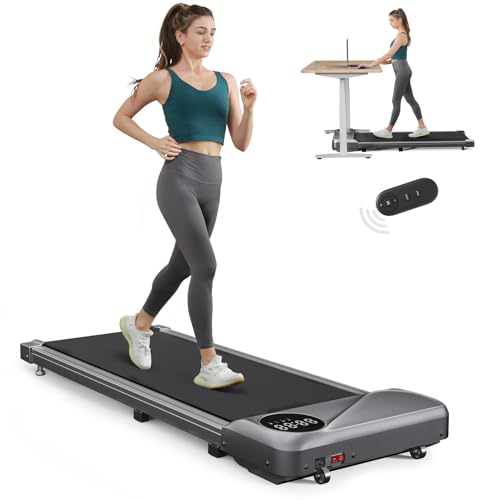Treadmills: A Comprehensive Guide to Understanding Their Functionality, Benefits, and Appropriate Selection
Introduction
Treadmills have actually ended up being a staple in modern fitness regimens, both in homes and fitness centers worldwide. They use a convenient and effective method to keep cardiovascular health, boost endurance, and help in weight management. This post explores the different kinds of treadmills, their advantages, functions to think about when purchasing, and some FAQs to guide users in making notified decisions.
Types of Treadmills
When it comes to choosing a treadmill, it is important to comprehend the different types readily available in the market. Here are the main classifications:
1. Handbook Treadmills
- System: These treadmills have a simple style and depend on the user's efforts to move the belt.
- Pros: More budget friendly, quieter operation, no electrical power required.
- Cons: Limited functions, may not provide the very same range of exercise intensity.
2. Motorized Treadmills
- Mechanism: Powered by a motor that drives the belt, enabling users to walk or perform at a set pace.
- Pros: Greater variety of speeds and slopes, equipped with many features such as heart rate displays and exercise programs.
- Cons: More expensive and may need more maintenance.
3. Folding Treadmills
- System: Designed for those with limited area, these treadmills can be folded for easy storage.
- Pros: Space-saving, often motorized, versatile functions.
- Cons: May be less resilient than non-folding models.
4. Business Treadmills
- System: High-quality machines created for use in health clubs and gym.
- Pros: Built to stand up to heavy usage, advanced features, typically consist of guarantees.
- Cons: Pricey and not ideal for home usage due to size.
5. Curved Treadmills
- System: An unique style that enables users to move the belt using their own energy.
- Pros: Offers a more natural running experience, promotes much better running kind.
- Cons: More expensive and can be noisier.
| Treadmill Type | Pros | Cons |
|---|---|---|
| Manual | Inexpensive, no electrical power needed | Restricted features |
| Motorized | Variety of speeds, advanced functions | Upkeep required |
| Folding | Space-saving, typically motorized | May lack toughness |
| Industrial | Developed to last, professional-grade features | Costly |
| Curved | Natural running experience, promotes excellent type | Higher rate |
Benefits of Using Treadmills
Treadmills provide numerous benefits that can contribute to one's general health and physical fitness goals. Some of these advantages include:
- Convenient Workouts: Treadmills allow users to exercise inside no matter climate condition.
- Cardiovascular Health: Regular usage can improve heart health by increasing endurance and promoting healthy circulation.
- Weight Management: Effective for burning calories, which helps in weight reduction and management.
- Personalized Workouts: Users can manage speed, slope, and period to develop customized workout experiences.
- Security: Treadmills offer a foreseeable surface area, lowering the threat of falls compared to outside running.
- Multifunctional: Many treadmills featured functions like heart rate screens, workout programs, and even home entertainment systems.
Choosing the Right Treadmill
When selecting a treadmill, prospective buyers must think about a number of crucial elements:
Features to Consider:
- Motor Power: Typically measured in horsepower (HP), a motor strength of a minimum of 2.5 HP is recommended for major runners.
- Belt Size: A longer and wider belt accommodates different stride lengths, offering convenience during exercises.
- Incline Settings: Adjustable slope features simulate outdoor hill running and can increase exercise strength.
- Weight Capacity: Ensure the treadmill can support the user's weight for security and longevity.
- Console Features: Look for easy to use control panels, exercise programs, and Bluetooth compatibility for streaming music or other functions.
Spending plan Considerations
- Under ₤ 500: Entry-level manual treadmills suitable for casual walkers.
- ₤ 500 - ₤ 1,500: Mid-range motorized treadmills that provide more features and much better durability.
- ₤ 1,500 - ₤ 3,000: High-end designs with advanced innovation, bigger motors, and longer warranties.
- Over ₤ 3,000: Commercial-grade treadmills perfect for frequent use in fitness centers or training centers.
Often Asked Questions (FAQs)
1. How typically should I utilize a treadmill?
It is recommended to use a treadmill at least 3 to 5 times a week, integrating different strength levels for best outcomes.
2. Can I reduce weight by using a treadmill?
Yes, consistent usage of a treadmill can add to weight reduction, specifically when combined with a balanced diet and strength training.
3. What is the very best speed to walk on a treadmill for beginners?
A speed of 3 to 4 miles per hour is an appropriate range for newbies. It's important to begin sluggish and slowly increase pace as convenience and endurance improve.
4. Do I require to utilize a treadmill if I currently run outdoors?
Using a treadmill can offer extra advantages, such as regulated environments and varied workouts (slope, intervals) that are not constantly possible outdoors.
5. How do I maintain my treadmill?
Regular upkeep consists of lubricating the belt, cleaning up the deck and console, and inspecting the motor for optimum performance.
Treadmills are essential tools for those aiming to enhance their fitness levels in a regulated and hassle-free manner. With different types readily available, understanding their features and benefits is important for making a notified purchase. By considering personal workout requirements, area availability, and spending plan restrictions, people can find the most suitable treadmill that fits their lifestyle. Incorporating site into a well balanced physical fitness regimen can cause improved health results and a pleasurable exercise experience.

